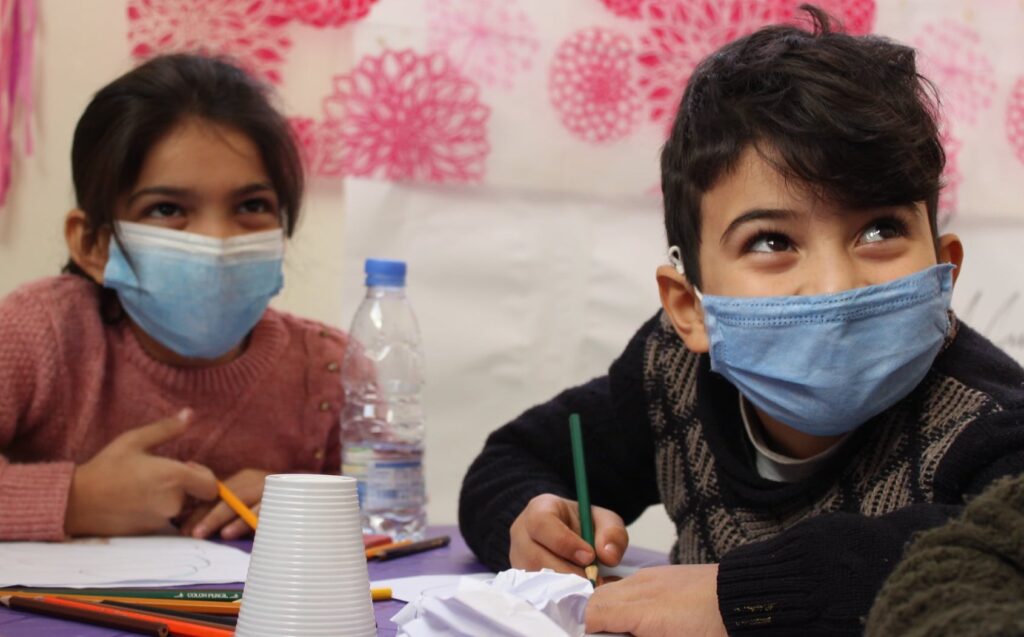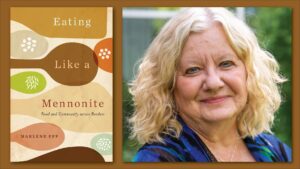Eight of Alice Joubanian’s grandchildren—all under eight years old—lived with her and her daughter in a Beirut camp for Armenian refugees when a massive explosion of ammonium nitrate rocked the city on Aug. 4, 2020.
As the sound and power of the explosion destroyed buildings and killed about 200 people, Joubanian’s daughter, Maria Berberian, ran to help the children, four of whom were her own and four of whom were her brother’s. In the chaos, she fell and broke her arm.
Berberian, a single mother, joined thousands of others in Beirut who were injured that day, making an already difficult life more so. Unable to keep working as a caregiver and housekeeper for an older woman in Lebanon, Berberian was fired.
As of late October, she had not yet found work to support her mother and the children. She was the sole wage earner for the household even before the explosion because her brother and his wife left their children with Berberian and Joubanian, who is a widow, infirmed and elderly.
Berberian tried to stretch the food supplies she had by pretending with her children that the flour and water she baked was shawarma, a Lebanese meat dish. Popcorn became a meal cooked over a fire made with scavenged wood because they couldn’t afford gas for their stove.

But when the family ran out of food completely, Joubanian turned to the Popular Aid for Relief and Development (PARD), a Mennonite Central Committee (MCC) partner, for help. Through MCC’s account at the Canadian Foodgrains Bank, PARD is providing half the amount of dry food their family needs each month from October 2020 to August 2021.
About 1,000 vulnerable families, such as large and female-headed households like Joubanian’s, will receive rice, lentils, bulgur, pasta, beans, canned fish, chickpeas, oil, sugar, salt and tea. The food will help sustain them until they can find work or solve other problems caused by the explosion.
“We are now able to cook and make meals for our children,” says Joubanian.
Garry Mayhew, MCC co-representative for Lebanon, Iraq and Syria, says MCC’s post-explosion work is critical to its mission and Christian witness: “We are called to be the hands and feet of Jesus. We continue to grieve at the enormity of the suffering that is happening in this part of the world.”
People in Lebanon were already struggling with a political and economic crisis before the explosion, Mayhew says. The value of the Lebanese lira has decreased by 85 percent since October 2019, and about 50 percent of the population lives below the poverty line.
COVID-19 also is complicating people’s ability to earn money.
Zakaria Amsheh has a motorized tuk-tuk (an auto rickshaw) he used to sell coffee and tea, but it was severely damaged in the explosion along with his house. His 12-year-old son, Mahmoud Amsheh, who was tending the business at the time, was thrown almost five metres by the explosion, exacerbating a nervous system disease he already has.
Several organizations helped Zakaria Amsheh to repair his house and tuk-tuk, but customers are hesitant to buy from him because they fear getting the coronavirus. He follows COVID-19 precautions, in part, to encourage sales.
The food box he receives from PARD each month helps Amsheh support his wife and three children, including Mahmoud, who needs medication and monthly doctor visits.
The need for food has become more critical since Jan. 14, when Lebanon started an 11-day, 24-hour lockdown to reduce the burgeoning hospitalizations from COVID-19.
Before the lockdown, PARD was able to give comforters, individual hygiene kits and family-size relief kits containing towels and hygiene supplies to about 600 households affected by the explosion. Another 400 families will receive these supplies when the lockdown is lifted.
MCC also is partnering with Forum for Development, Culture and Dialogue (FDCD) to rebuild homes and re-establish businesses in Beirut. That work is temporarily paused until the lockdown is lifted. Both PARD and FDCD are offering social and emotional support activities for children and adults who were traumatized by the explosion.
The needs that the MCC representatives see around them are extensive.
“At times we feel helpless and overwhelmed,” Mayhew says. “But when we hear the stories . . . we are reminded that even the smallest act of kindness can make a difference. This motivates us to press on, despite the challenges we face.”
Related stories:
Crisis in Lebanon
MCC responding to explosion in Beirut









Leave a Reply
You must be logged in to post a comment.